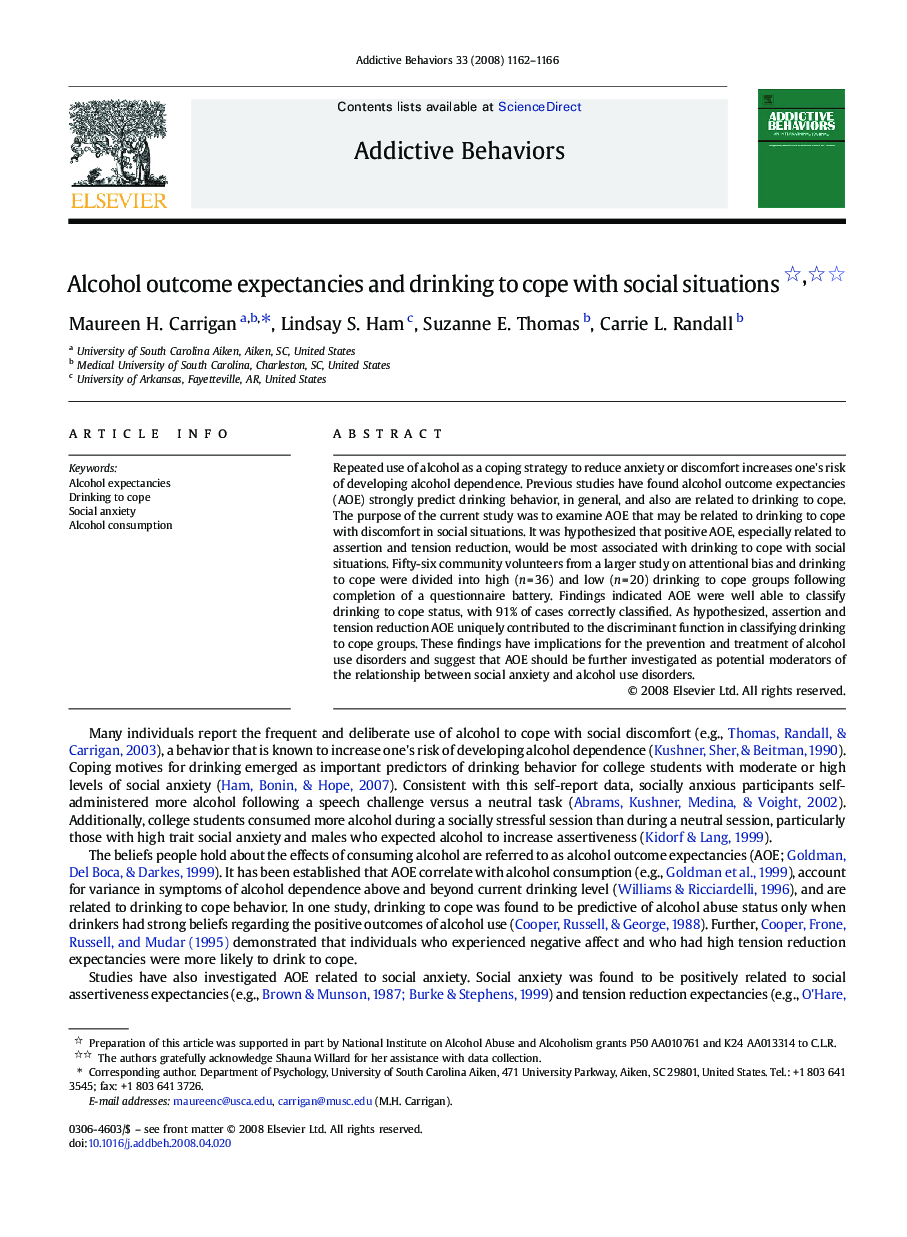| Article ID | Journal | Published Year | Pages | File Type |
|---|---|---|---|---|
| 899764 | Addictive Behaviors | 2008 | 5 Pages |
Repeated use of alcohol as a coping strategy to reduce anxiety or discomfort increases one's risk of developing alcohol dependence. Previous studies have found alcohol outcome expectancies (AOE) strongly predict drinking behavior, in general, and also are related to drinking to cope. The purpose of the current study was to examine AOE that may be related to drinking to cope with discomfort in social situations. It was hypothesized that positive AOE, especially related to assertion and tension reduction, would be most associated with drinking to cope with social situations. Fifty-six community volunteers from a larger study on attentional bias and drinking to cope were divided into high (n = 36) and low (n = 20) drinking to cope groups following completion of a questionnaire battery. Findings indicated AOE were well able to classify drinking to cope status, with 91% of cases correctly classified. As hypothesized, assertion and tension reduction AOE uniquely contributed to the discriminant function in classifying drinking to cope groups. These findings have implications for the prevention and treatment of alcohol use disorders and suggest that AOE should be further investigated as potential moderators of the relationship between social anxiety and alcohol use disorders.
